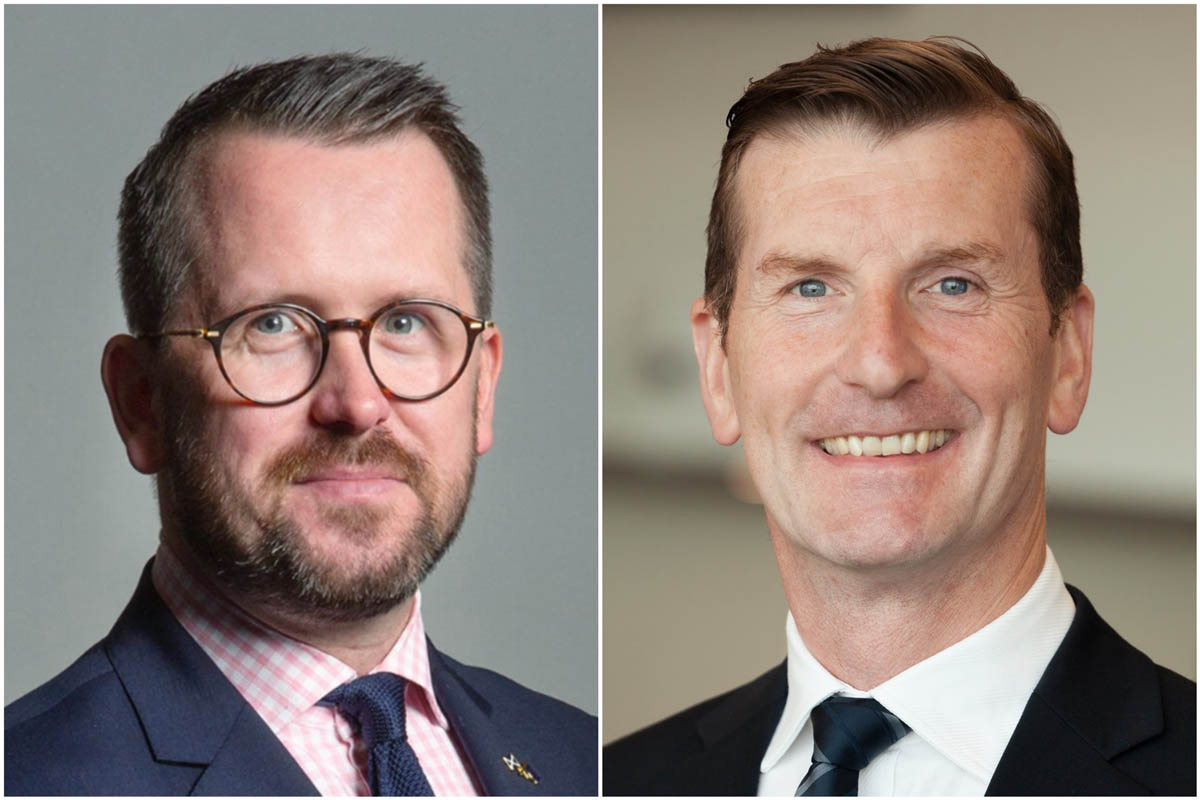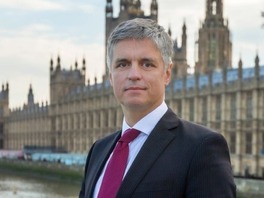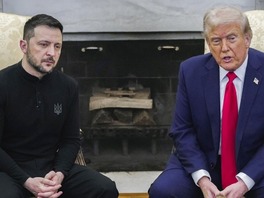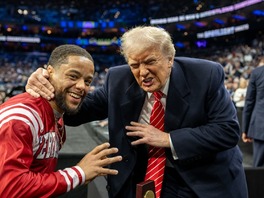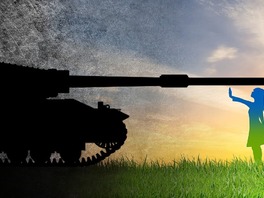The United Kingdom is one of the countries which, not in words, but in deeds, support Ukraine in the conflict with Russia. In particular, it concerns the provision of financial assistance of 1.7 billion pounds (about $2.3 billion) for the purchase and joint construction of warships for the Ukrainian Navy and the development of naval infrastructure. Besides, the UK intends to create, together with Ukraine and Poland, a trilateral defense and political alliance, which is designed to resolutely rebuff the Russian threat. Apostrophe news outlet together with Apostrophe TV talked about bilateral cooperation, as well as coordination within the trilateral alliance, with British MPs STEWART MCDONALD and DAVE DOOGAN (Scottish National Party), who are members of the parliamentary committee on foreign relations and are part of the group on British-Ukrainian relations.
- How high are the risks that Russia will attack Ukraine?
- Stewart McDonald. The risks are obviously high. The military built-up is extraordinary and unprecedented and is of concern of people here in Ukraine and people right across the Western word, Europe in particular. But we hope that there is a diplomatic solution found. War is in no one’s interest, certainly not of Russia’s. And we should take this risk seriously – that’s why the UK has supported Ukraine the way it has and other countries are also supporting the way they have. And we hope that a new wave of war, an escalation of conflict that is already ongoing can be avoided.
- Dave Doogan. As Ukraine is on the frontline of this military built-up and pressure from Russia it’s not simply an attack on Ukraine or a threat of an attack, this is a threat to Western democratic values and we should be all very concerned about it.
- Ukraine, Great Britain and Poland are set to form a trilateral partnership. What are the principles on which this alliance is going to function? What are the prospects of this alliance?
- S.M. Clearly, that the three countries share certain values and security interests. The government of the United Kingdom has not been forthcoming on the detail but we can understand the merits of such an alliance. We have been discussing with our counterparts in the Verkhovna Rada about what they would like to see that alliance will look like. We will need to have discussions with our own fellow parliamentarians and the government back home.
- D.D. There are shared values and there are shared obligations as well. The pressure and threat to each of the nations from malign Russian activity is there. For the United Kingdom we have to quickly protect our airspace from Russian incursions, in terms of Poland - with weaponization of the migrant crisis coming from Belarus and certainly this pressure on Ukraine from Russia.
- Can we speak about deep integration of the three nations including the political level, as the two states of this alliance – Ukraine and the UK - are not members of the EU?
- S.M. We lament the fact that that UK is not part of the European Union. For our political party it’s for Scotland to be back in the European Union. But the United Kingdom and Poland are NATO members, Ukraine obviously has its on-projection to get into NATO in the future, so I think that whether there can be military cooperation, intelligence, cyber – a cooperation in response to the threat and driven by the values of the three nations involved in the alliance – it can be something really robust. I think if it’s going to be meaningful it does need that all the three countries have to be willing to bring something to the table, benefit from that and ensure there is an appropriate response to the threat picture as we see the Russian threat presents itself in each of the three counties. So I think that a closer cooperation in dealing with that can only be a good thing for the security of the three counties but also other neighboring countries as well.
- D.D. The EU is a political and economic construct and defense partnerships and alliances go across it irrespective of geography or political allegiances, and certainly an independent Scotland when we achieve that will look to be an active member of NATO alongside the rest of the United Kingdom. It does not prevent defense and military cooperation.
- We have heard a lot of critique of the UN being ineffective. Isn’t there a new trend to work in smaller unions like that one with Ukraine, the United Kingdom and Poland which could be more efficient?
- S.M. The United Nations, the European Union, NATO are imperfect because human beings are involved who are by design imperfect, but I would be weary of suggesting that these smaller unions, which could be effective, should replace the multilateral institutions. The European Union remains the greatest peace project in the world and although Britain left it, it’s in the UK’s interest that it works and prospers. The smaller unions cannot replace the models of the architecture that already exists but they can complement them for sure.
- D.D. An independent Poland within the European Union is making its own strategic defense and security decisions for itself with the allies both of whom are out of the European Union. So it’s good for both Poland and the European Union as a construct.
- What kind of interaction and cooperation will the trilateral alliance have with NATO?
- D.D. Again, we don’t have the detail, but fundamental to it is that as NATO members the United Kingdom and Poland, whatever we may agree trilaterally with Ukraine, NATO has primacy over everything that will be created on the trilateral basis of those nations.
- Prime Minister Boris Johnson has announced plans to double the number of British troops in Central Europe. Can we say this is a move in support of Ukraine and a message to Russia that Europe stands by Ukraine?
- S.M. It is all of those things. But most importantly it’s a response to an entirely understandable and legitimate request of the government of Estonia who have asked us for it. There is no point in waiting for Russia to escalate its actions in Ukraine before we enhance the NATO on its eastern border. There is the reason why the Baltic governments are asking for that to happen now and I think that the big lesson that we have learned is that we have to be able to respond to it and take it seriously. Because if we go back to your first question, the risk is real and we have to treat it as such. So, if the Baltic governments, and in particular the government of Estonia, ask us to increase the NATO presence and we didn’t do that, I think that would not just be wrong but send the wrong message as well.
- There are reports in the media that Russian money has great influence on the British policy. Is it true and, if yes, how the UK is going to counter it?
- S.M. That’s a broader issue about using various financial instruments to hide the money of the oligarchs who are very close to President Putin. So we look forward to new sanctions, but whatever they will bring forward it will still not be enough.
- D.D. As for the sanctions, there is no detail but the Foreign Secretary (Liz Truss) has been very clear that the economic effect on Russia, on extremely wealthy Russian individuals (if Russia attacks Ukraine) will be extremely severe. The level of integration of extreme Russian wealth into the London economy and elsewhere in the United Kingdom is so high that it’s a very real threat. And so it’s the responsibility of the UK government to make sure it is comprehensive, thorough and far-reaching.
- Let’s go back to military cooperation. Britain is going to give Ukraine a loan worth 1.7 billion pounds to purchase warships and develop naval infrastructure. The deal has been ratified by Ukraine’s parliament, the Verkhovna Rada. Do you envisage new British investment projects in Ukraine concerning the defense sector?
- S.M. Yes, almost certainly. We had discussions with political colleagues, we were in the Ministry of Defense. We have supported the UK government’s provision of weapons it has already given. We understand that your government and armed forces would like some additional measures. We’ll go back to London and take some wrap-up.
- D.D. It’s a welcome issue that the two Sandown-class warships (HMS Blyth and HMS Ramsey) that have been in service with the Royal navy which are coming to Ukraine are currently in Scotland being improved to Ukrainian specifications and hopefully they will be in service with the Ukrainian navy very soon.
- British PM Boris Johnson’s rating has been falling lately because of the "partygate" scandal. If this, or some other reason, causes his cabinet resignation will the UK continue to stand by Ukraine?
- S.M. The sure answer is yes. We agree (with the Conservative party of Boris Johnson) on not a lot. But on support for Ukraine we all agree. All parties are united on this.

